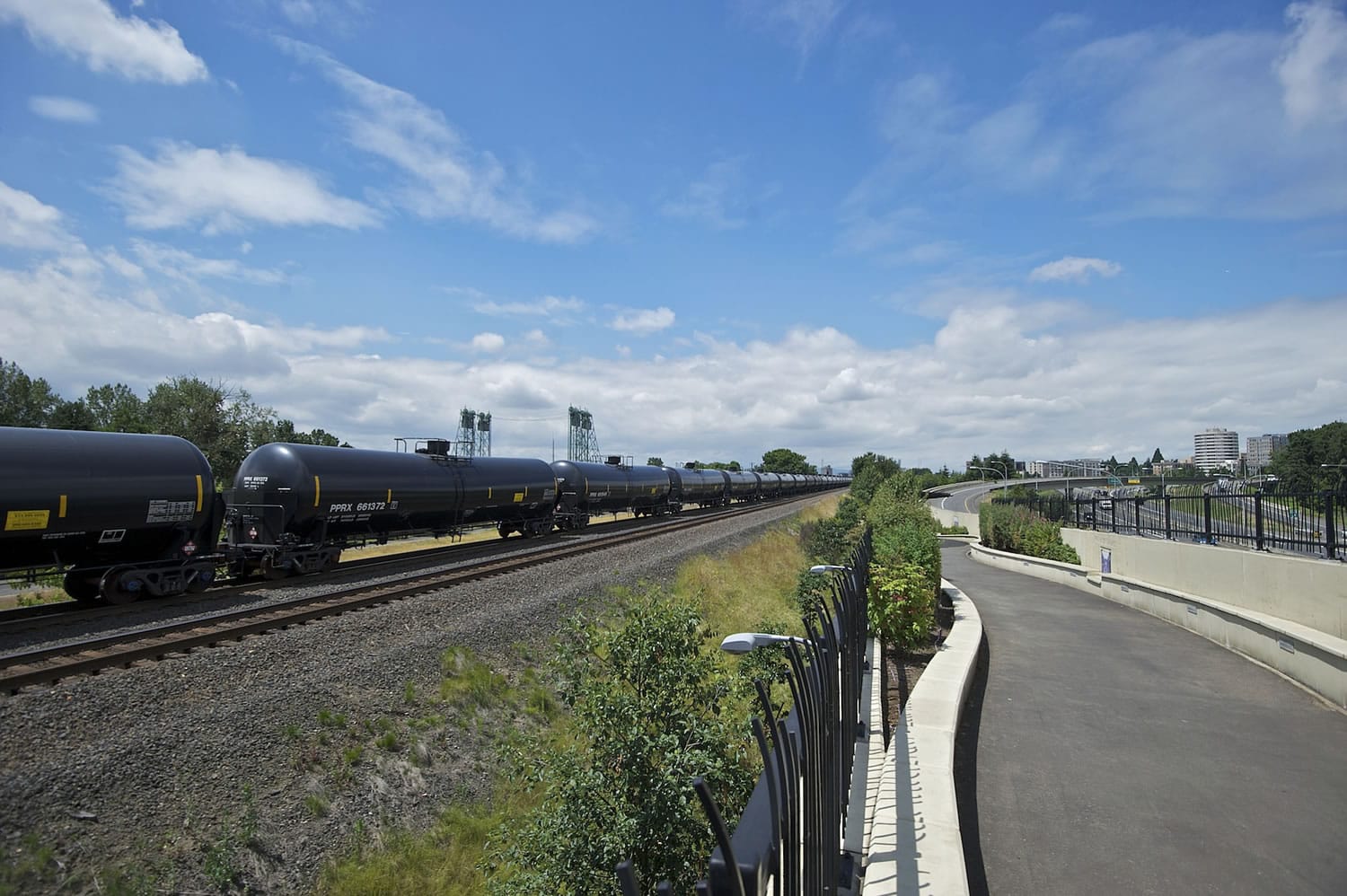The companies seeking to build the nation’s largest rail-to-marine oil transfer terminal at the Port of Vancouver haven’t been shy in expressing their disappointment about delays in the project’s review by a state agency.
However, Tesoro Corp., a petroleum refiner, and Savage Cos., a transportation company, have now won a victory in the project’s timeline. The companies have rejected the state review panel’s request to give the public more time than state law allows to study and comment on what’s expected to be a voluminous draft analysis of the oil terminal’s environmental impacts.
The public will get 45 days to comment on the draft document, as confirmed Thursday by the top administrator of the state Energy Facility Site Evaluation Council, which controls the oil terminal’s review process.
That’s far less than the 120 days that opponents of the oil terminal, including the city of Vancouver, had urged the evaluation council to give the public. The evaluation council itself asked Tesoro and Savage to agree to 60 days of public comments.
But the companies, operating as Vancouver Energy, refused that request. And state law is on the companies’ side: It requires a minimum 30-day public comment period, with room to add 15 days for a total comment period of 45 days.
“Our rules do not give us authority to go beyond a 45-day comment period,” Stephen Posner, manager for the evaluation council, said Thursday. “That’s why I asked for (the companies’ agreement) to go beyond that” limit.
In an email to The Columbian, Jennifer Minx, a spokeswoman for Tesoro, said state law allows “a maximum 45-day comment period for a draft environmental impact statement of this nature.” She also said: “Given the multiple opportunities for public input afforded throughout the (evaluation council) process, we don’t believe it’s necessary to further delay the process by extending the comment period.”
Brett VandenHeuvel, executive director of Columbia Riverkeeper, which opposes the project, said Thursday the public deserved to have more time to absorb such a massive project. “To me, the real issue is why is Tesoro afraid of giving people time to review the impacts?” he said. “We’re looking at a thousand-page document that will describe the impacts, and people should have time to digest that.”
The preliminary impact analysis, known as a draft environmental impact statement, is expected to be released for public comment on Nov. 24.
The issue of how long the public should have to inspect and remark on the draft analysis intensified in early June. Posner sent a letter June 8 to Kelly Flint, senior vice president and general counsel for Vancouver Energy, asking the companies to agree to a 60-day public comment period.
“Many of the issues to be addressed in the (draft analysis) are unprecedented in the analysis of proposed energy projects in the state of Washington,” Posner wrote. “Offering the public a reasonable time period to review and provide meaningful comments is essential to the (state Environmental Policy Act) process.”
Given the “controversial nature of the project and the extremely high level of public interest,” Posner added, “I believe a longer comment period of 60 days is warranted and request your concurrence.”
In a June 29 letter, Flint rejected Posner’s request, writing that the companies “do not think it necessary or appropriate to extend beyond the period prescribed by the state Legislature and the Department of Ecology’s (state Environmental Policy Act) regulations.”
Tesoro and Savage submitted their building application to the evaluation council on Aug. 29, 2013. The companies want to build an oil transfer terminal capable of handling about 360,000 barrels of crude per day. The terminal would receive oil by trains, then transfer it to marine vessels bound for other facilities. If built, it would be the largest such terminal in the United States.




